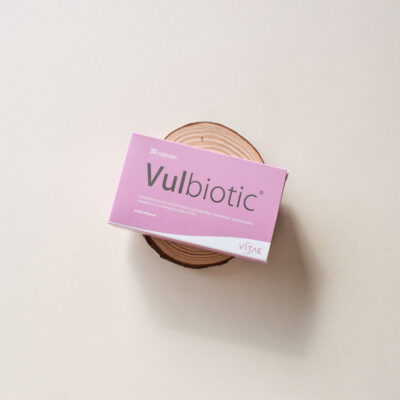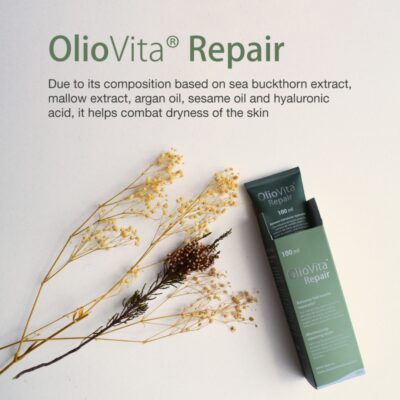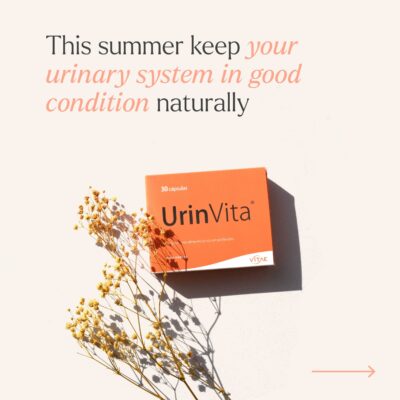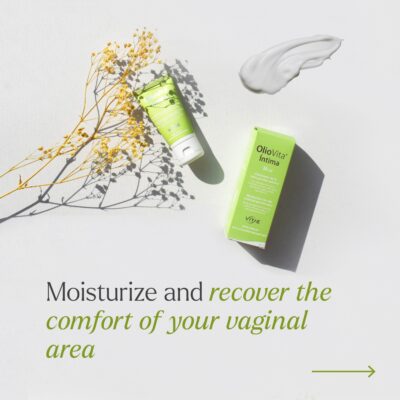Vaginal dryness is one of the most characteristic symptoms of women during menopause. It happens due to the absence of natural moisture in the vagina. In normal circumstances, female arousal produces the discharge of a transparent mucus that aims to protect the vaginal walls, maintain the elasticity of that organ and provide it with a smooth texture that allows male penetration without pain.
The first thing we have to know is what vaginal dryness really is. Atrophic vaginitis is caused by a decrease in estrogen. Due to this, the vaginal tissue contracts causing a loss of the optimal level of mucosa. It is a condition that is usually associated with menopause, a period during which a decrease in vaginal discharge is frequent and, consequently, a non-optimal hydration of the vulva.
Vaginal dryness is usually a benign condition, but we should not stop treating it for this reason, since it can considerably reduce our quality of life, especially in terms of sexual health, and it can also turn out to be an indicator of the beginning of a vaginal atrophy problem. In all cases, it is always advisable to have the point of view of a gynecology professional. Vaginal dryness or vulvar dryness not only produces vaginal itching and pain during sexual intercourse, but also generates a trauma that has the first consequence of rejecting the partner.
Therefore, we are not talking about a minor problem, it is a pathology that can negatively affect various aspects of your life. The good news is that we currently have very effective 100% natural treatments to combat vulvar dryness.
Why do I have this symptom?
Vaginal dryness occurs for many reasons, some of them hormonal, but others can be attributed to stress, fear, guilt, low libido, and even loss of attraction to a partner. Also for the consumption of drugs to treat cancer and other diseases, for having undergone treatments such as chemotherapy or radiotherapy and even for smoking. As we have already warned in other articles published on the Vitae blog, vaginal dryness is one of the typical symptoms of pre-menopause and menopause itself. Dryness in the mucous membranes and skin is a frequent pathology among women that we must treat properly. However, since the causes that give rise to this pathology are so diverse, the first thing that can be done to solve vaginal dryness is to identify its origin.
How to treat vaginal dryness?
Artificial lubricants are the quintessential emergency solution for women suffering from vaginal dryness. These products are available on the market in two large groups: those made with water and those made with silicone. It is necessary to understand that silicone-based lubricants can cause allergies and are usually reactive towards latex, which, as we know, is the raw material for condoms and the vast majority of sex toys.
Natural lubricants contain a wide variety of plants such as sage, flax or red clover, known for their beneficial effects against vaginal dryness. Thanks to their content of Phytoestrogens, these plants have the ability to reactivate the natural hydration of the vagina, when this is due to hormonal variations.
Food supplements such as those offered by Vitae Health Innovation, a specialist laboratory in 100% natural food supplements. One of its most characteristic formulas is indicated to hydrate the skin and mucous membranes and combat vaginal dryness, as well as dry eyes (dry eye problems that we will deal with in another publication). Oliovita is an innovative formula on the market based on 100% natural sea buckthorn oil rich in Omega 7, an ingredient that has been scientifically proven highly efficient in treating vulvar dryness.









i have vaginal dryness i wish to combat this with a remedy
The ingredients in this product look helpful.
However how come you don’t mention using topical estrogen to help vaginal dryness caused by low estrogen and then use your product alongside or say it can help for the few women unable to use topical estrogen?
Good morning!
First of all we want to thank you. The post refers to Phytoestrogens or estrogens of natural origin present in different plants in nature. The article is oriented to vaginal dryness and the possible ways of improvement in general, without going into detail on any of them, including oral supplementation, a world perhaps less well known than the topical or direct application of different products in case of dryness vaginal. We collect your proposal for future blog posts related to vaginal dryness as our goal is to make them useful to our readers and consumers.